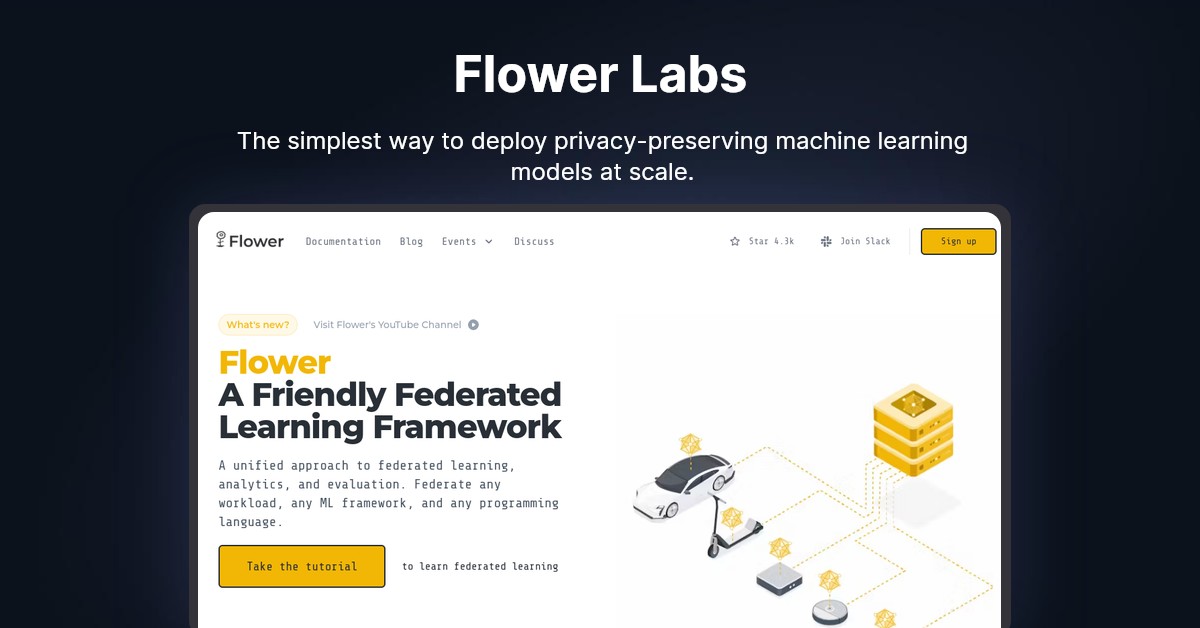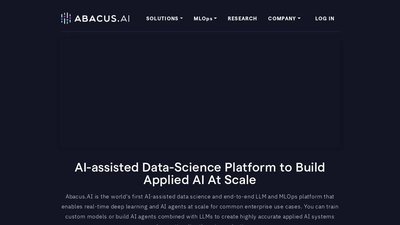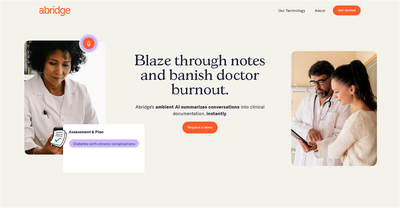Flower Labs

Flower is a federated learning framework designed to simplify and democratize the deployment of machine learning models across a diverse range of platforms and devices. It stands out for its ability to federate any workload across any ML framework and any programming language, ensuring seamless integration into existing systems. With a focus on scalability, Flower supports real-world systems with tens of millions of clients, making it ideal for both research and production environments. The framework abstracts the complexities of federated learning, enabling users to set up a system with minimal code, enhancing privacy, security, and leveraging distributed computing resources.
Flower's architecture is ML framework agnostic, supporting popular frameworks like TensorFlow, PyTorch, and NumPy. It offers platform independence, allowing deployment across cloud, mobile, edge, and beyond without significant engineering effort. The usability is further enhanced by comprehensive documentation and tutorials, accessible to both newcomers and experienced practitioners.
Highlights:
- Ability to federate any workload across any ML framework and programming language
- Scalability to support real-world systems with tens of millions of clients
- ML framework agnostic architecture supporting TensorFlow, PyTorch, and NumPy
- Platform independence for deployment across cloud, mobile, edge, and beyond
- Comprehensive documentation and tutorials for easy adoption
Key Features:
- Flexible integration with existing systems
- Enhanced privacy and security through federated learning
- Support for a wide range of platforms and devices
- Minimal code setup for federated learning systems
- Extensive community and resources for support
Benefits:
- Improves model performance across distributed networks
- Reduces data centralization risks
- Enhances privacy by not exchanging local data samples
- Leverages distributed computing resources
- Accessible to a wide range of users from researchers to industry professionals
Use Cases:
- Healthcare for improving diagnostic models without sharing patient data
- Edge computing scenarios like IoT devices
- Enhancing privacy in mobile applications, such as keyboard prediction algorithms
- Research and development of scalable federated learning models
- Implementing federated learning across various devices and operating systems
This content is either user submitted or generated using AI technology (including, but not limited to, Google Gemini API, Llama, Grok, and Mistral), based on automated research and analysis of public data sources from search engines like DuckDuckGo, Google Search, and SearXNG, and directly from the tool's own website and with minimal to no human editing/review. THEJO AI is not affiliated with or endorsed by the AI tools or services mentioned. This is provided for informational and reference purposes only, is not an endorsement or official advice, and may contain inaccuracies or biases. Please verify details with original sources.






Comments
Please log in to post a comment.